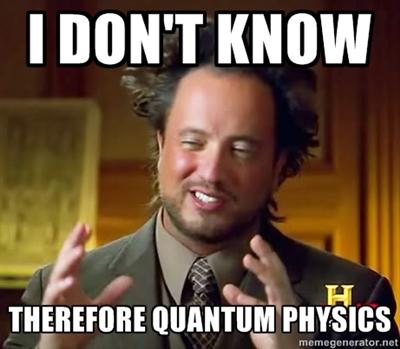pdupiano
1000+ Head-Fier
- Joined
- Aug 2, 2008
- Posts
- 1,480
- Likes
- 22
Quote:
I would like to further add that the above improvement cannot possibly be placebo/bias, because I HEARD it.
I'm pretty sure you missed my points in the other threads to make such a statement. And quite possible the point of this one.
All that I am pointing out is that science cannot give you ultimate truth (something true for all time) and at best it can give you what is the "best possible truth for now." Now why would you want "ultimate truths?" Simply because people make decisions and comments (like those found in the threads in the science section), believing that they know something, when in fact they do not know -how could they. There are a great deal of social, political, and economical factors that play into science (which should make you question its supposed objectivity) and science also has an even greater moral impact on our society, especially today with new fields in bio-engineering/technology.
**************************************Warning: The remainder of this post contains both Political and Religious Stuff, proceed with Caution***************************************************************************************
Take for example the 9/11 commision's (I forgot the actual name of the committee) stance against providing aid/care to the 9/11 rescuers who are now suffering respiratory ailments as well as several forms of cancer. They claim that there is no scientific evidence (more recently there is scientific evidence to support the connection between health problems and the 9/11 attacks) connecting their health issues with working at ground zero conditions and subsequently decided that those individuals should not be treated using government money. In this case, "science" changed in the course of 10 years (as more data was presented and collected, albeit through individuals dying and suffering through cancer without aid/care). Who knows, perhaps after another 10 years, perhaps we find out that there was another cause for cancer/respiratory problems and the committee will have to once again over turn their decision.
The reason I bring this up, is because the lay men and women who appear to champion science, more so than scientists, uphold science to a level of inscrutability that was once reserved for religion (effectively making science their religion). And like old religions, it is those who practice science professionally (like priests/priestesses) who know that its all a crock. Yeah there's a bit of truth in there, but its not what you think, or at least its not as amazingly true/accurate as you think it is. And of course, just like in religion, none of these individuals get to run/control any aspect of the political environment (with exceptions to the Pope in the Vatican and high ranking scientists in National Research Labs in the US), and so things are run by lay men and women who do not fully understand. Policies today revolving around "scientific research" use science to distance the committee or individual proposing a policy away from the actual decision they make. Politicians are quite good at distancing themselves from responsibility and liability (letting science take care of it) and accepting credit when they do something good.
*****************************************************************************************************************************************************************************************************************************************************
What this all amounts to is how dangerous science can be, when individuals do not understand its limitations and its claims to truth. Philosophers have brought up the problems with science for centuries, and in fact, Plato/Socrates even goes through reasons why science can never find truth in the Phaedo (at least science as we call it today). Centuries later, Hume, Kant, Fayerabend, and even scientists turned historians like Kuhn illustrated the same concerns from 2000 years ago. Did scientists ever respond to the problems? No. Do they care? No. Are they going to find the truth? People think so.
The next time animals/humans or any living (screw it even inanimate) beings are experimented on or treated for supposed cures, just remember that its not 100%, in fact its not even 90% accurate. Its possible that it may just be 10% more effective than a placebo, and that is more than enough for a scientist to call it successful.







